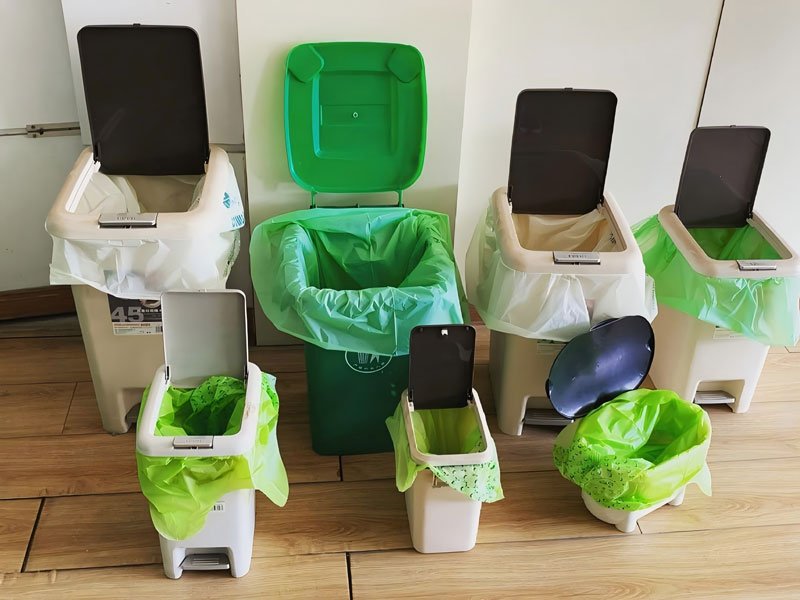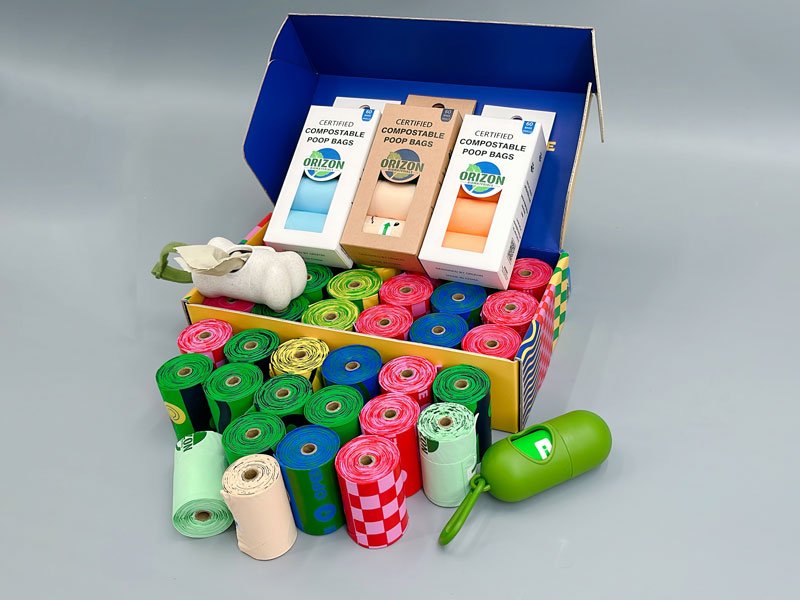In a world increasingly focused on sustainability, compostable bags have gained popularity as an eco-friendly alternative to traditional plastic. But the question lingers: Are compostable bags truly compostable? Many consumers and businesses are skeptical, wondering if these bags live up to their green claims or if they’re just another case of greenwashing.
This guide dives deep into the truth about compostable bags, exploring how they’re made, how they break down, and what certifications to trust. By the end, you’ll know exactly how to choose reliable compostable bags and avoid misleading claims.
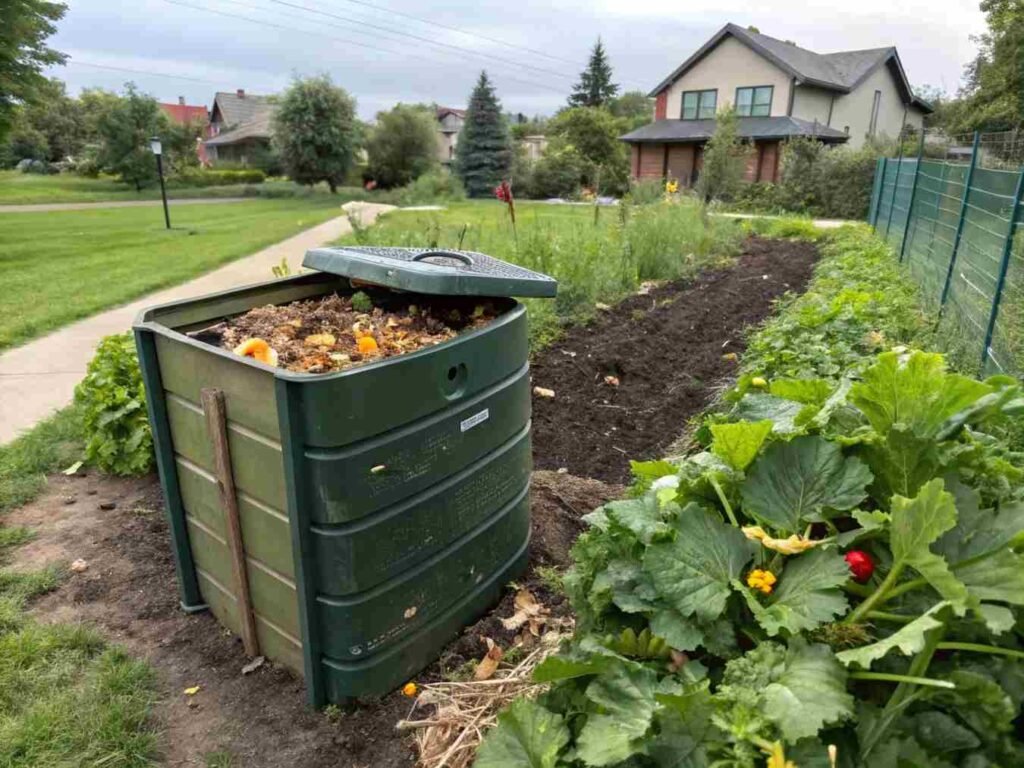
What Does “Compostable” Really Mean?
Compostable bags completely break down into natural elements like water, carbon dioxide and biomass under specific conditions. This process usually takes place in industrial composting facilities, where heat, moisture and microorganisms work together to break down the material.
Two main types of composting:
- Industrial composting: Controlled temperature and humidity, usually above 50°C.
- Home composting: Lower temperature, slower breakdown.
If a bag doesn’t meet these conditions, it may not fully decompose—or worse, it may contaminate the compost stream.
What Are Compostable Bags Made Of
Compostable bags are made from plant-based materials, polylactic acid (PLA), polybutylene adipate terephthalate (PBAT), and corn starch. PLA, which is derived from corn or sugar cane, has a high stiffness, while PBAT has a high flexibility, making the bags both durable and compostable. The materials are blended together to create a film that is strong enough to contain pet waste, groceries, or household garbage without leaking.
Unlike traditional petroleum-based plastics, compostable bags avoid the use of fossil fuels, thereby reducing their carbon footprint. They are different from bioplastics or oxo-degradable plastics, which often contain additives that break down into microplastics instead of breaking down completely.

Are Compostable Bags Really Compostable in Real Life?
In industrial composting facilities, the answer is yes – provided the conditions are right.
These facilities maintain temperatures of 50-60°C, high humidity and microbial activity, allowing certified bags to decompose in 3-6 months. Studies by the British Biotechnology Institute (BPI) and others have shown that bags that meet the ASTM D6400 standard do not leave any toxic residues and are therefore safe for soil.
Home composting is less reliable. Most compostable bags struggle to decompose in backyard compost bins due to low temperatures and unstable environmental conditions. A 2019 study by the University of Plymouth found that some “compostable” bags were still intact after 27 months in a home compost. This highlights the importance of checking certifications and understanding disposal options.
Compostable bags do not decompose well in landfills. In the absence of oxygen or high temperatures, they break down slowly, sometimes taking years. That’s why proper disposal in an industrial composting facility is crucial. Unfortunately, according to the EPA, only about 9% of U.S. cities offer curbside composting, which limits access for many consumers.
What Are the Compostability Certifications?
- BPI Certification: Ensures bags meet ASTM D6400 or D6868 standards for industrial composting in North America.
- EN13432: The European standard for compostable packaging, requiring 90% decomposition within 6 months.
- TÜV Austria OK Compost: Confirms suitability for industrial or home composting, depending on the label.
- ASTM D6400: Tests for toxicity and disintegration in industrial compost settings.
When sourcing bags, check for these logos on packaging or request documentation from suppliers. Beware of vague claims like “eco-friendly” or “biodegradable” without certification, as they may indicate greenwashing. Reputable manufacturers, like Orizon, display certifications prominently and provide test reports upon request.
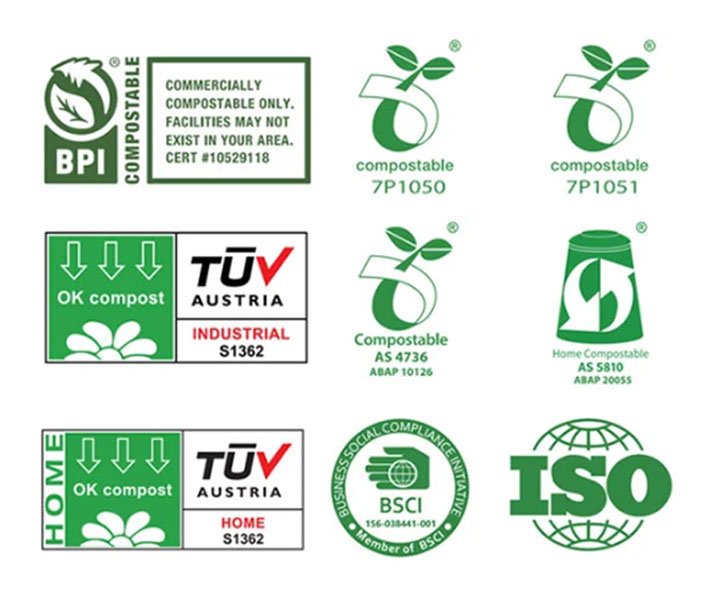
Common Myths About Compostable Bags
Myth: Compostable bags dissolve in landfills.
Fact: Landfills lack the heat and microorganisms needed for composting. Compostable bags require industrial facilities to break down effectively.
Myth: Biodegradable equals compostable.
Fact: Biodegradable bags may leave microplastics or take decades to degrade, while compostable bags break down completely into natural elements.
Myth: All compostable bags are suitable for home composting.
Fact: Most compostable bags require industrial composting. Only bags labeled “OK Compost HOME” are suitable for backyard trash cans.
Greenwashing is real, and some brands exaggerate to attract environmentally conscious buyers. Be sure to verify certification information and ask suppliers for testing data to avoid falling for misleading marketing.
How to Choose a Truly Compostable Bag
Verify certifications: Look for BPI, EN13432 or OK Compost logos on the packaging. Ask suppliers for relevant certificates to confirm compliance.
Check materials: Make sure bags are made from PLA, PBAT or corn starch, not oxo-degradable additives or petroleum-based plastics.
Ask about disposal: Confirm if bags are suitable for industrial or home composting. Suppliers should provide clear disposal instructions.
Evaluate durability: Test samples for leak resistance and tear resistance, especially for pet waste or heavy objects.
From trusted manufacturers: Choose factories with proven expertise, such as Shandong Oruisen, which has 16 years of experience and offers OEM customization services.
For businesses, working with certified suppliers ensures consistent quality and compliance. Retailers can boost their credibility by educating customers on proper bag disposal and highlighting certifications on product pages.
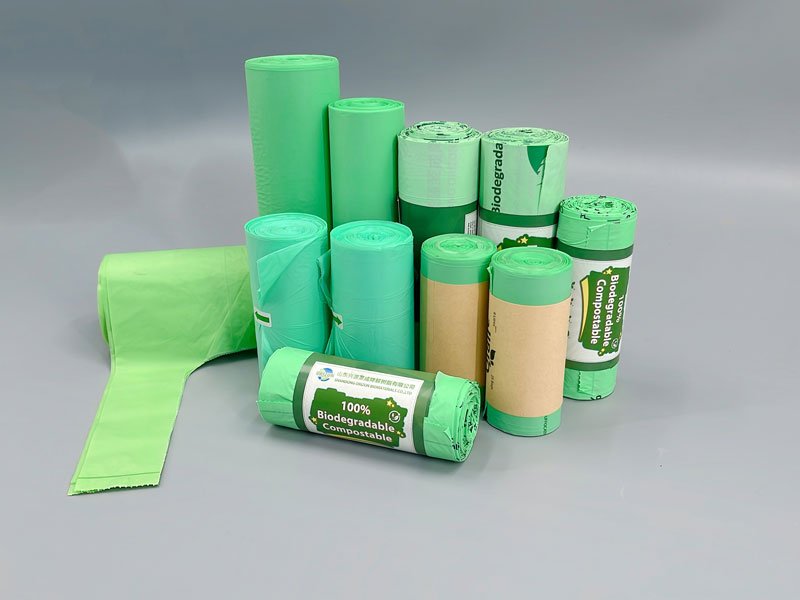
Conclusion
Do compostable bags really work? The answer is yes, as long as they are certified and disposed of correctly. Compostable bags are a sustainable alternative to plastics that can reduce reliance on fossil fuels and minimize environmental harm. Effectiveness depends on proper disposal in industrial composting facilities and clear certifications such as BPI or EN13432.
For pet owners, retailers or businesses, compostable bags are worthwhile if they are made by a reputable manufacturer. They are environmentally friendly and practical, but only if you understand their limitations (e.g., limited suitability in home composting). By choosing certified bags and educating consumers on disposal, you can contribute to a greener future.
Ready to source high-quality compostable bags? Contact Shandong Orizon Biomaterials Co., Ltd. for BPI-certified solutions that can be customized to your needs. Email sales@orizonbio.com or visit our product page for a quote.
FAQ
Do compostable bags break down in landfills?
No, compostable bags need industrial composting conditions (50–60°C, high humidity) to decompose efficiently. In landfills, they break down slowly due to low oxygen and heat.
What temperature do compostable bags need to decompose?
Most require 50–60°C, typical of industrial composting facilities. Home compost bins (20–40°C) are usually too cool unless the bag is labeled “OK Compost HOME.”
How long does it take for compostable bags to decompose?
Certified bags decompose in 3–6 months in industrial composting, per EN13432 and ASTM D6400 standards. Home composting may take longer or fail.
Are all compostable bags safe for the environment?
Only certified bags (e.g., BPI, EN13432) are proven safe, leaving no toxic residue. Always check certifications to avoid greenwashed products.


